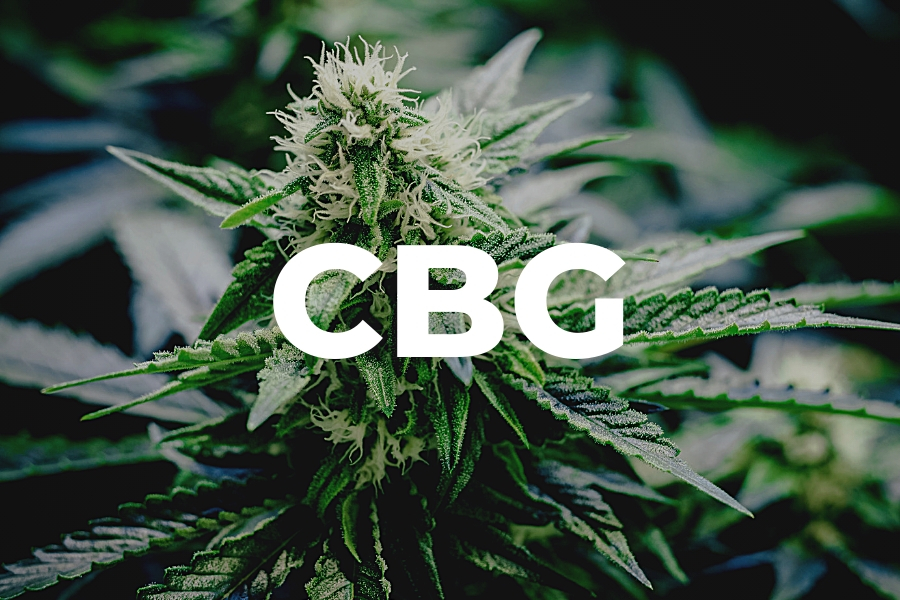Tetrahydrocannabinol (THC) and cannabidiol (CBD) are the two most well-known and discussed cannabinoids found in marijuana, of the hundreds that there are. THC and CBD also form part of the main cannabinoids in cannabis.
Let’s take a look at a lesser-known cannabinoid called cannabigerol (CGB). It all starts with the acidic form, CBGA, which is essentially the parental cannabinoid of CBG, THC, and CBD. CBG and its acidic parental cannabinoid, CBGA, are also non-intoxicating, just like CBD. This means you are free to use CBG without worry of it interfering with daily responsibilites, driving, work, school, and more.
What Is CBG?
This cannabinoid is a cousin to THC and CBD. For explanation purposes, let’s call the CBGA cannabinoid the mother, seeing as though we use female plants for their flowers. The mother produces an acid, CBGA, that acts as a precursor to the main cannabinoids and their respective acids found on the plant.
The main cannabinoid acids derived from CBGA are called THCA, CBDA, and CBCA (see below). Enzymes in the plant break down the CBG acid and direct the broken-down acid towards the main cannabinoid acids. After that, exposure to heat or an ultraviolet light turn those acids into the cannabinoids we love; THC and CBD. As a result, CBG is the 3rd most common cannabinoid, and CBC is the 4th.
The Health Benefits of CBG
CBG, just like CBD, is providing desirable results for medical conditions and illnesses. Although the current research is limited, the results are already promising. The first survey study on CBG was done in 2022 and shows how people are reporting significant relief of several conditions, including:
- Anxiety
- Depression
- Endometriosis
- Chronic and acute pain
- Insomnia and sleep disturbances
- Migraines and headaches
- Nausea
- Irritable bowel syndrome
- Crohn’s disease and ulcerative colitis
- Cancer-related symptoms and treatments
- Fibromyalgia
- Glaucoma
- PMDD and menopause symptoms
- Enhancing sexual experiences
- Several other painful or inflammatory conditions
Earlier preclinical studies tested the effects of using cannabinoids for the treatment of glaucoma. It is thought that CBG may be particularly effective in glaucoma. This is due to the fact that it acts as a vasodilator (opening blood vessels) and has neuroprotective effects (protection and preservation of neuronal structures and functions).
In recent animal studies, CBG has been found to aid in inflammatory bowel disease, Huntington’s disease, colorectal cancer cells, and bladder dysfunction disorders. Huntington’s disease is characterized by the degeneration of nerve cells in the brain. CGB has shown to protect neurons in this disease by reducing inflammation.
The inflammation and pain in inflammatory bowel disease may also be reduced significantly with CBG. This is backed up by survey respondents with IBS or IBD (Crohn’s and colitis) who largely claimed it was more effective than conventional medication (82.4% and 75% respectively).
CBG has also shown to block receptors that fuel cancer growth cells and presents itself as a very exciting potential therapy for colorectal (colon or rectum) cancer. It inhibited tumors, as well as prohibiting the formation of cancer (carcinogenesis). Five different cannabinoids were tested on bladder contractions, and CBG tested best. It inhibited muscle contractions, which could be used for preventing bladder dysfunction disorders. CBG is also promising as an antidepressant and anxiolytic.
In the majority of the cannabis strains, less than 1% CBG can be found in the plants. In order for us to benefit from the medical properties of CBG, its quantity in the plants needs to increase. Breeders are currently experimenting with genetic manipulation and cross-breeding to increase its quantity. The more THC content there is on a plant, the less the CBD and CBG content and vice versa. Thankfully, modern selective breeding techniques can give us type IV cannabis plants with up to a 100% CBGA and CBG profile.
With CBG gaining more and more interest from medical professionals, breeders and users, we now have three cannabinoids that are each respectively extraordinary. There are hundreds of cannabinoids on this plant and limited studies done on their medical benefits. Imagine what we might find if we invested more resources into investigating this revolutionary plant. The shown benefits of CBG are specific, but its medicinal value is life-changing for many already. Who knows…this cannabinoid could possibly take the limelight from CBD if large clinical studies appear someday.
Want to learn more about using CBG to soothe various conditions? Take a look at these posts:
Note: The content on this page is for informational purposes only and is not intended to be professional medical advice. Do not attempt to self-diagnose or prescribe treatment based on the information provided. Always consult a physician before making any decision on the treatment of a medical condition. This article was originally published in 2019 and most recently updated in 2024.
Author, Share & Comments
















